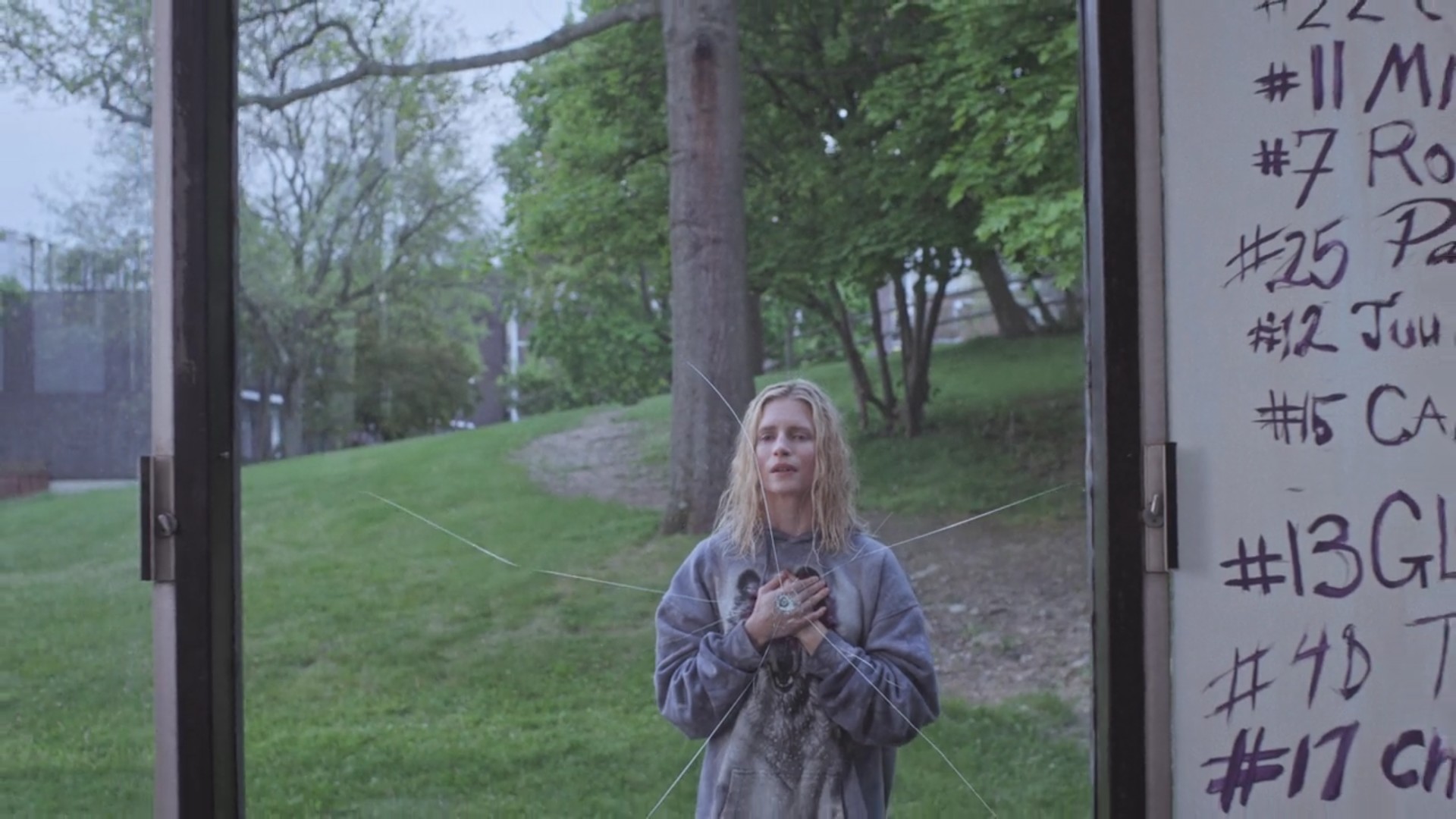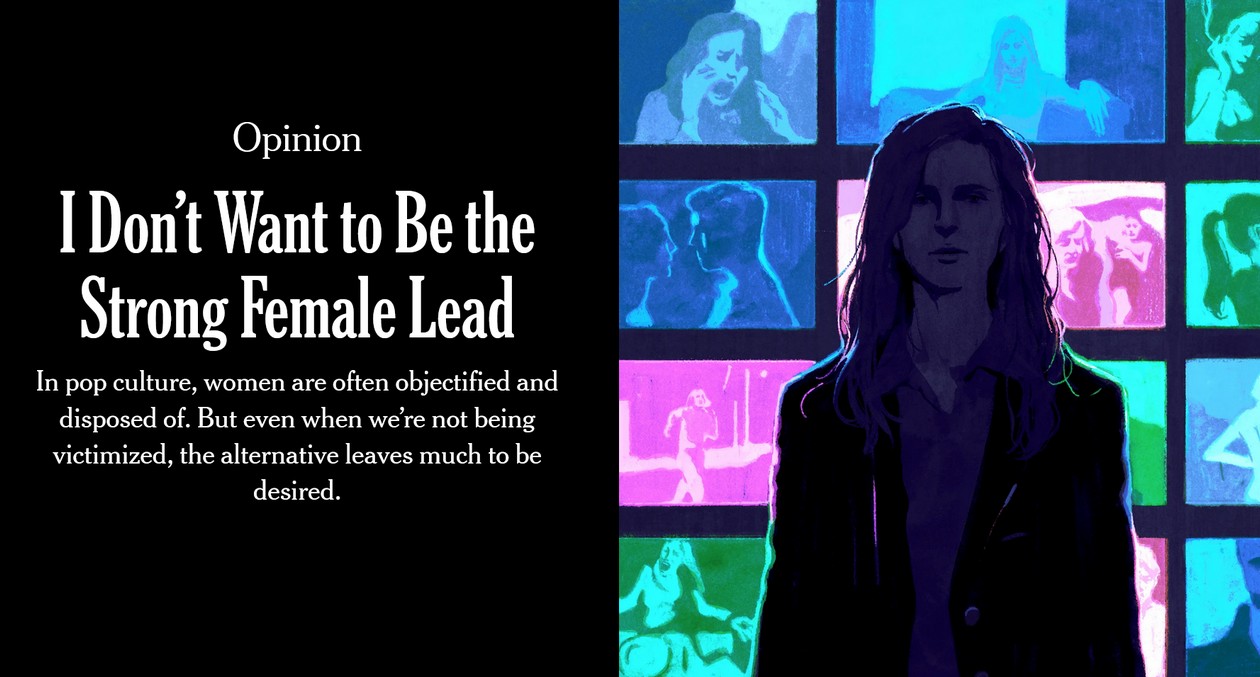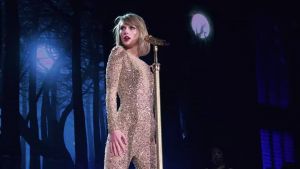Brit Marling
I Don’t Want to Be the Strong Female Lead
Feb. 7, 2020
-> Read the full article on the New York Times website
Extracts from the article:
(...)
"Even when I found myself writing stories about women rebelling against the patriarchy, it still felt like what I largely ended up describing was the confines of patriarchy. The more fettered I felt inside the real world, the more I turned toward science fiction, speculative fiction and lo-fi fantasy.
I eventually co-wrote, produced and starred in two microbudget films, “Another Earth” and “Sound of My Voice.” Both stories left reality just far enough behind to give me the mental freedom to imagine female characters behaving in ways not often seen onscreen.
(...)
It would be hard to deny that there is nutrition to be drawn from any narrative that gives women agency and voice in a world where they are most often without both. But the more I acted the Strong Female Lead, the more I became aware of the narrow specificity of the characters’ strengths — physical prowess, linear ambition, focused rationality. Masculine modalities of power.
(...)
When we kill women in our stories, we aren’t just annihilating female gendered bodies. We are annihilating the feminine as a force wherever it resides — in women, in men, of the natural world. Because what we really mean when we say we want strong female leads is: “Give me a man but in the body of a woman I still want to see naked.
It’s difficult for us to imagine femininity itself — empathy, vulnerability, listening — as strong. When I look at the world our stories have helped us envision and then erect, these are the very qualities that have been vanquished in favor of an overwrought masculinity.
(...)
I don’t believe the feminine is sublime and the masculine is horrifying. I believe both are valuable, essential, powerful. But we have maligned one, venerated the other, and fallen into exaggerated performances of both that cause harm to all. How do we restore balance? Or how do we evolve beyond the limitations that binaries like feminine/masculine present in the first place?
(...)
As time has passed, I’ve come to understand what deep influence shaping a narrative has. Stories inspire our actions. They frame for us existences that are and are not possible, delineate tracks we can or cannot travel. They choose who we can find empathy for and who we cannot. What we have fellow feeling for, we protect. What we objectify and commodify, we eventually destroy.
I don’t want to be the dead girl, or Dave’s wife. But I don’t want to be a strong female lead either, if my power is defined largely by violence and domination, conquest and colonization.
Sometimes I get a feeling of what she could be like. A truly free woman. But when I try to fit her into the hero’s journey she recedes from the picture like a mirage. She says to me: Brit, the hero’s journey is centuries of narrative precedent written by men to mythologize men. Its pattern is inciting incident, rising tension, explosive climax and denouement. What does that remind you of?
And I say, a male orgasm.
And she says: Correct. I love the arc of male pleasure. But how could you bring me into being if I must satisfy the choreography of his desire only?
(...)
I imagine new structures and mythologies born from the choreography of female bodies, non-gendered bodies, bodies of color, disabled bodies. I imagine excavating my own desires, wants and needs, which I have buried so deeply to meet the desires, wants and needs of men around me that I’m not yet sure how my own desire would power the protagonist of a narrative.
These are not yet solutions. But they are places to dig.
Excavating, teaching and celebrating the feminine through stories is, inside our climate emergency, a matter of human survival. The moment we start imagining a new world and sharing it with one another through story is the moment that new world may actually come".
Brit Marling
-> Read the full article on the New York Times website

Brit Marling: Prairie Johnson | THE OA | Brit Marling, Zal Batmanglij | Netflix, 2016 - 2019


